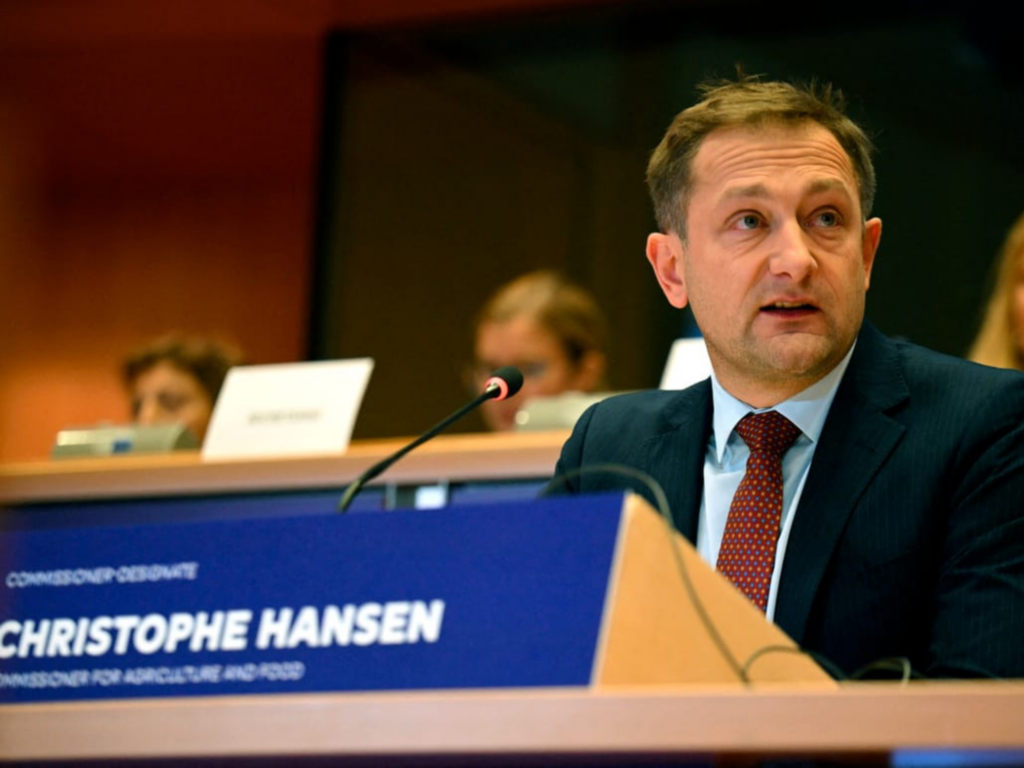
Fermentation has transformative potential for the future of the EU’s agrifood system – but industry leaders say they need regulatory and financial support from policymakers.
The EU must build its modern fermentation capacity to strengthen agricultural resilience and safeguard its future food system, industry experts have said.
In a new position paper, trade body Food Fermentation Europe (FFE) argues that technologies like biomass and precision fermentation can deliver resilient protein production, cut emissions, and boost the EU’s competitiveness, at a time when it is facing calls to greenify the food system.
“The recently unveiled Vision for Agriculture and Food sets the direction for the sector, emphasising sustainability, resilience, and competitiveness,” the FFE says, noting that fermentation can “offer transformative solutions that align with the EU’s objectives”.
In simple terms, precision fermentation involves using microbes to produce specific ingredients – such as recombinant animal proteins – and biomass fermentation entails cultivating microbial biomass as food.
Unlocking the full potential of this industry requires decisive and bold policy action, including clearer regulation and increased investment to help scale up production and bring future-friendly ingredients to market.
Why fermentation holds the key to EU’s future food system

Formed in 2023, FFE represents nine fermentation firms working on animal-free proteins and fats, including whey, casein and egg alternatives. Its position paper is a result of months of consultation between policymakers, think tanks, scientists, startups, and industry leaders.
It notes how fermentation tech supports some of the EU’s key agrifood targets, including the bioeconomy strategy, which outlines the need for innovative production models. The fermentation industry can create high-value jobs and attract investment – it was the only alternative protein sector to see an increase in financing last year.
The authors argue that the category can boost food security by providing stable, local sources of high-quality proteins and essential nutrients. And since these innovations require less land and water than animal proteins – and mitigate food waste by valorising agricultural side streams – they help optimise food production while reducing pressure on natural ecosystems.
In addition, precision and biomass fermentation can support the EU’s net-zero goal for 2050. The recently unveiled agrifood vision was criticised by climate experts for failing to highlight protein diversification; European Agricultural Commissioner Christophe Hansen has since promised to develop a comprehensive plan to diversify plant protein sources.

FFE suggests that fermentation, by virtue of its efficiency and scalability, is poised to be a “key pillar” in the EU’s food vision. However, there are several hurdles that need to be addressed.
One of the most urgent ones is the EU’s novel food regulatory framework, which has long been thought of as too complex and slow, pushing several alternative protein companies to look elsewhere to commercialise.
“Current approval processes under the novel food regulation are not sufficiently agile to keep pace with rapid innovation in fermentation,” the paper states. “While Europe’s rigorous safety assessment is a cornerstone that we fully support, the process can be made more innovation-friendly without compromising standards.”
There is also a lack of support for industrial scale-up, while the overall success of the fermentation industry depends on how well it’s integrated into the bloc’s food resilience and bioeconomy plans. “Ensuring that these technologies are considered in policy dialogues and that their strategic value is recognised by all stakeholders is imperative,” says FFE.
Regulatory clarity, investment, and consumer trust key to success

So how can the EU cultivate the right environment for fermentation tech? FFE believes the European Food Safety Authority must establish a clear, science-based regulatory framework for novel foods.
It’s important to approve products based on science and safety considerations alone, without any influence of “subjective perceptions of threats to traditions or culture” (which have been used as arguments to ban cultivated meat). “We urge the Commission to not deprive European consumers of their freedom of choice to adopt innovation,” FFE says, adding that Europe would otherwise not remain a world leader in this sector.
Further, the EFSA must speed up the approval process for fermentation-derived ingredients, and policymakers should recognise them as strategic assets in achieving the EU’s food resilience and climate goals, and reducing its reliance on external protein sources.
“Ensure fermentation-based food production is embedded within the EU’s bioeconomy and biotech discussions, aligning with sustainability, competitiveness and food security goals,” says FFE.
The bloc has already been investing millions into these technologies through initiatives like Horizon Europe, and is being urged to continue doing so. “Encourage risk insurance mechanisms to de-risk private sector investments in food biotech innovation,” the paper suggests.

Additionally, the EU should promote targeted R&D partnerships to bridge the gap between lab success and market viability. Here, public-private collaboration is key: this would help develop fermentation infrastructure and ensure integration into existing food and feed supply chains. Industrial symbiosis models – where fermentation facilities contribute to circular economy initiatives, such as waste valorisation and nutrient recovery – should be a major focus.
Finally, greater awareness is key to consumer acceptance and adoption, so the EU is being called on to launch campaigns that educate the public on the benefits of fermentation-derived proteins.
“By integrating fermentation technologies into the EU’s policy agenda, Europe can position itself as a global leader in sustainable food production, ensuring long-term economic and environmental success in the agrifood landscape,” FFE says, adding that “regulatory clarity, investment incentives, and consumer trust-building efforts must go hand in hand”.
The post Fermentation Can Futureproof the EU Food System – But Only With Regulatory Reform appeared first on Green Queen.
This post was originally published on Green Queen.